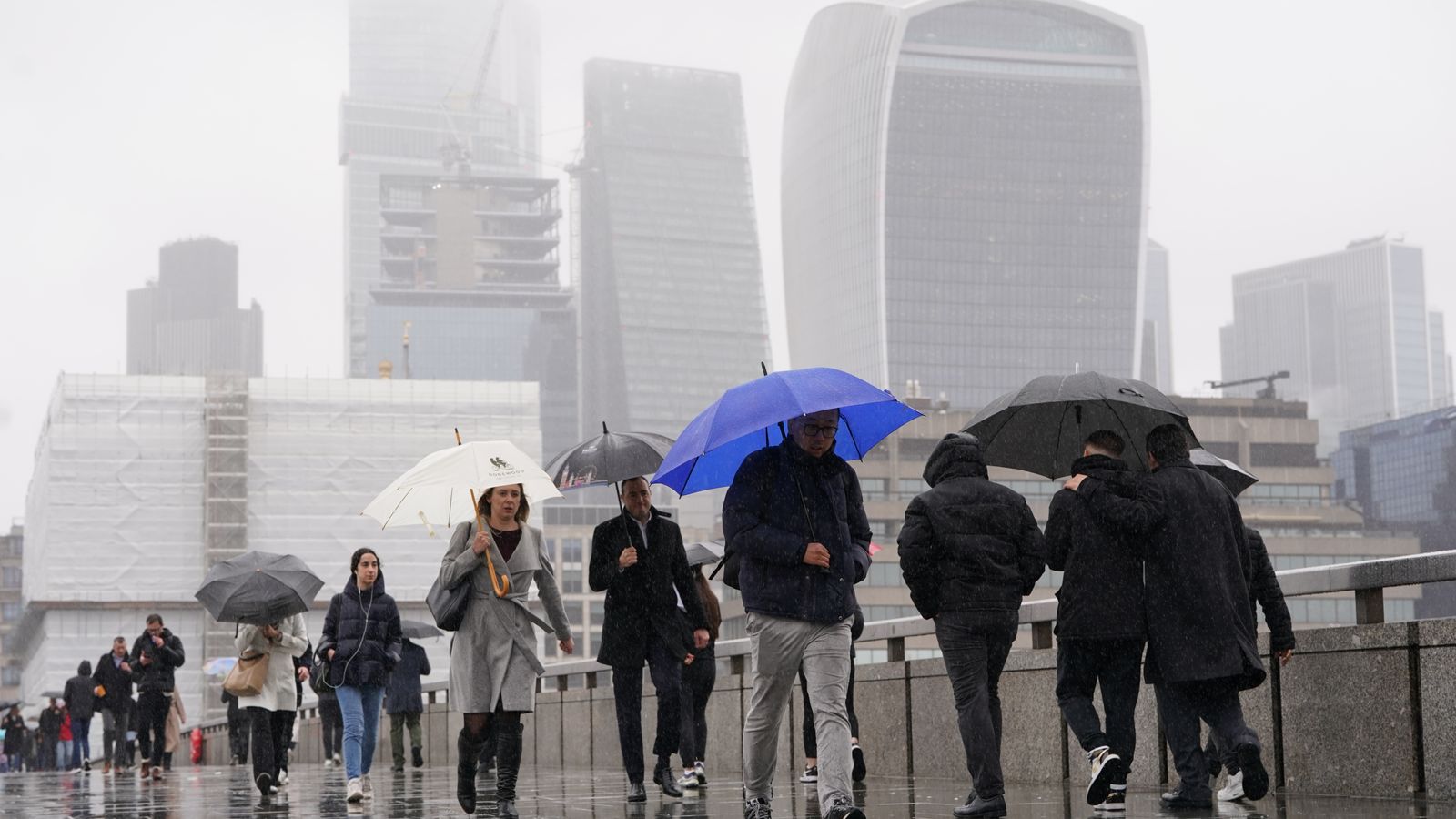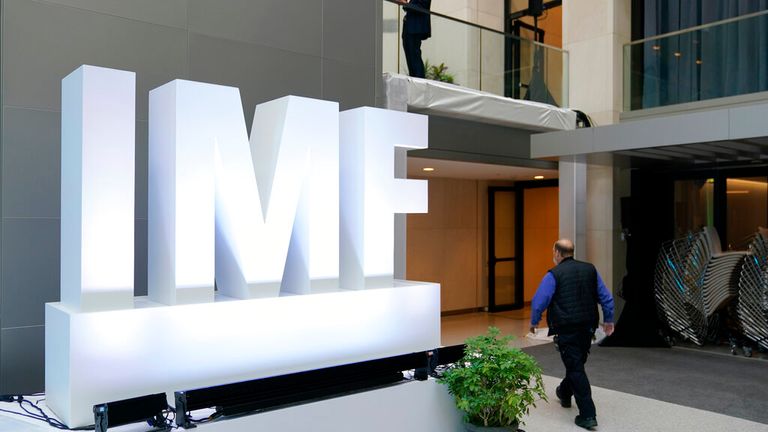The UK economy is going to grow less than expected this year – with the International Monetary Fund warning the country will remain the second worst performer in the G7.
Newly revised forecasts indicate the UK’s gross domestic product will expand by just 0.5% in 2024 – a slight downgrade from previous estimates in January – compared with global growth of 3.2%.
However, UK GDP is tipped to increase by 1.5% in 2025 – making it the third-best performer among G7 nations – as households recover following a prolonged cost of living crisis.
According to the IMF, inflation in the British economy will remain at about 2.5% for the rest of this year but fall towards the Bank of England’s target of 2% next year.
Follow latest: Financial markets take Middle East escalation in their stride
When looked at per head – with output split across the UK’s population – GDP flatlines, with no growth at all for 2024 and 1.1% in 2025.
This metric gives a better sense of living standards and how the economy feels for individuals by adjusting for the UK’s growing population with record legal immigration flows.
According to the IMF, the global economy has been “remarkably resilient” over the past two years – but the escalating conflict in the Middle East could push up food and energy prices around the world.
Pierre-Olivier Gourinchas, the IMF’s director of research, said: “Yet, despite many gloomy predictions, the world avoided a recession, the banking system proved largely resilient, and major emerging market economies did not suffer sudden stops.”
The IMF believes lower-income countries would be harder hit if food, energy and transport prices rose.
While negative risks include a slow recovery of China’s troubled property sector, economists believe the outlook could be improved if elections being held around the world lead to tax cuts and a short-term boost to activity.
Overall, global output is expected to grow by 3.2% this year – an 0.1 percentage point rise from its previous report in January.
Both the Conservative government and Labour opposition have staked their successes on a growing economy.
Prime Minister Rishi Sunak made economic growth one of his five key priorities at the start of 2023 – but the UK entered a recession late last year.
Labour is hoping more growth will allow for greater tax takes and generate money to fund increased public service spending.
It has adopted the same rules on borrowing as the Tories and said it will not grow debt.
A HM Treasury spokesperson said: “The forecast for growth in the medium term is optimistic, but like all our peers, the UK’s growth in the short term has been impacted by higher interest rates, with Germany, France and Italy all experiencing larger downgrades than the UK.
“Today’s report shows we are winning the battle against high inflation, with the IMF forecasting that it will fall much faster than previously expected.
“With inflation falling, wages rising, and the economy turning a corner, we have been able to lower taxes for 29 million people, as part of our plan to reward work and grow the economy.”



